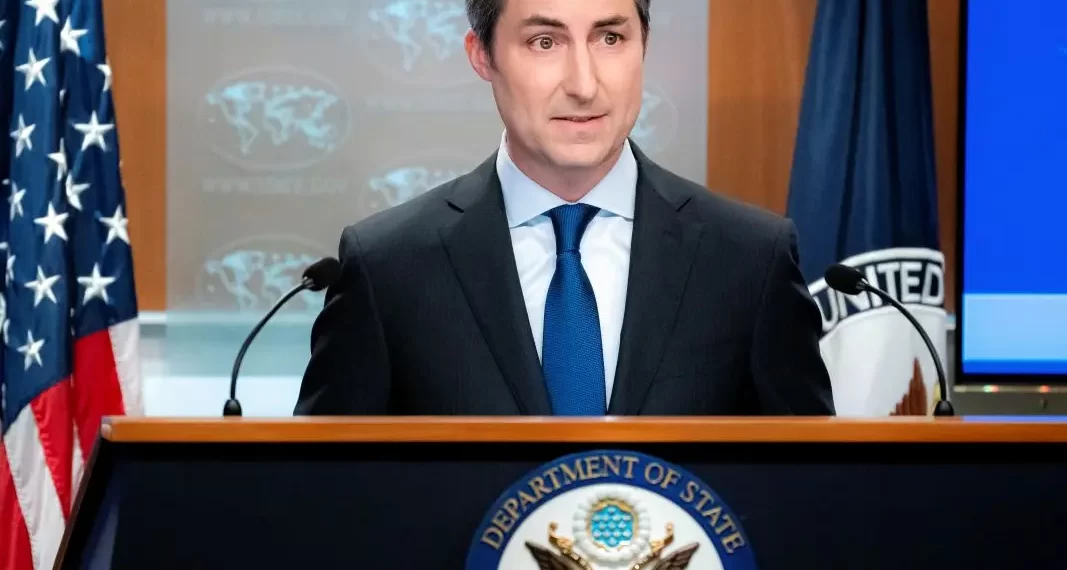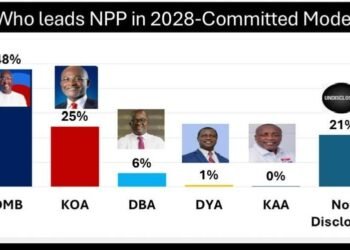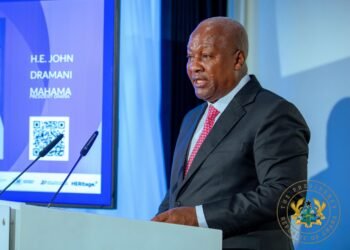The United States has issued a warning to Ghana, stating that it might limit foreign aid if President Nana Addo Dankwa Akufo-Addo signs a new bill that criminalizes LGBTQ+ activities into law. Ghana’s Parliament approved legislation that could lead to prison sentences of up to three years for identifying as LGBTQ+ and five years for forming or supporting LGBTQ+ organizations.
US State Department spokesperson Matthew Miller expressed concerns about the potential consequences of the bill, noting that its enactment could have a chilling effect on foreign investment and tourism in Ghana and could affect U.S. assistance to the country.
“So, we have made very clear what our opinion is on that law – you can look at my statement yesterday – and we have made that clear in private conversations with the Government of Ghana as well. I don’t think I should get any more specific than that, but if this bill becomes law, it would certainly have a chilling effect on foreign investment and tourism in Ghana.”
Matthew Miller, US State Department
The US State Department disclosed that it might limit foreign aid to Ghana if the bill is signed into law. In fiscal year 2022, the United States provided over $211 million in assistance to Ghana, supporting various sectors including agriculture, malaria prevention, and AIDS combat efforts. The extent to which this aid would be affected by the new law remains uncertain.
The proposed bill criminalizing LGBTQ+ activities in Ghana has drawn international condemnation, with several countries expressing their concerns.
The United Nations (UN) and the United States have joined a chorus of condemnation against Ghana’s hardline anti-LGBT bill, highlighting the global concern over similar legislation. This international backlash underscores the global human rights community’s stance against laws that restrict the rights of LGBTQ+ individuals.
“You’ve seen that same chilling effect bear fruit in Uganda, which passed a very similar law in the past, and I can say that should the bill pass, it would potentially have ramifications on U.S. assistance in the country”.
Matthew Miller, US State Department
The global human rights community strongly opposes laws that restrict the rights of LGBTQ+ individuals. This stance is rooted in the understanding that all human beings are entitled to enjoy the same fundamental human rights, regardless of their sexual orientation or gender identity and expression.
The Universal Declaration of Human Rights declares that “all human beings are born free and equal in dignity and rights” and that “Everyone is entitled to all the rights and freedoms outlined in this Declaration.” This foundational document underscores the importance of equality and non-discrimination, principles that are central to the advocacy for LGBTQ+ rights.
Ghana’s Parliament approved legislation that could lead to prison sentences of up to three years for identifying as LGBTQ+ and five years for forming or supporting LGBTQ+ organizations.
Although many African nations criminalize same-sex relationships, recent legislative efforts across the continent have sought to reinforce such laws.
Legislator Sam George, the bill’s sponsor, praised its passing on social media and emphasized the preservation of national values. The United States, however, swiftly condemned the proposed legislation, mirroring criticism leveled at Uganda for its more stringent anti-LGBTQ+ laws.
A spokesman for the State Department, Matt Miller, emphasized Ghana’s history of tolerance and respect for human rights while voicing worries that the bill might compromise these principles. Uganda’s harsh penal code, which imposes life in prison and the death penalty for “aggravated homosexuality” and “homosexuality,” led the U.S. to limit the country’s aid receiving $20 million.
Stressing the significance of upholding everyone’s human rights, Amnesty International pleaded with President Akufo-Addo not to sign the bill. Amnesty International’s country director for Ghana, Genevieve Partington, denounced the bill, citing instances of LGBTQ+ people’s rights being violated since the bill was introduced in parliament.
READ ALSO: UN Concerned About Ghana’s Anti-LGBTQ+ BILL























